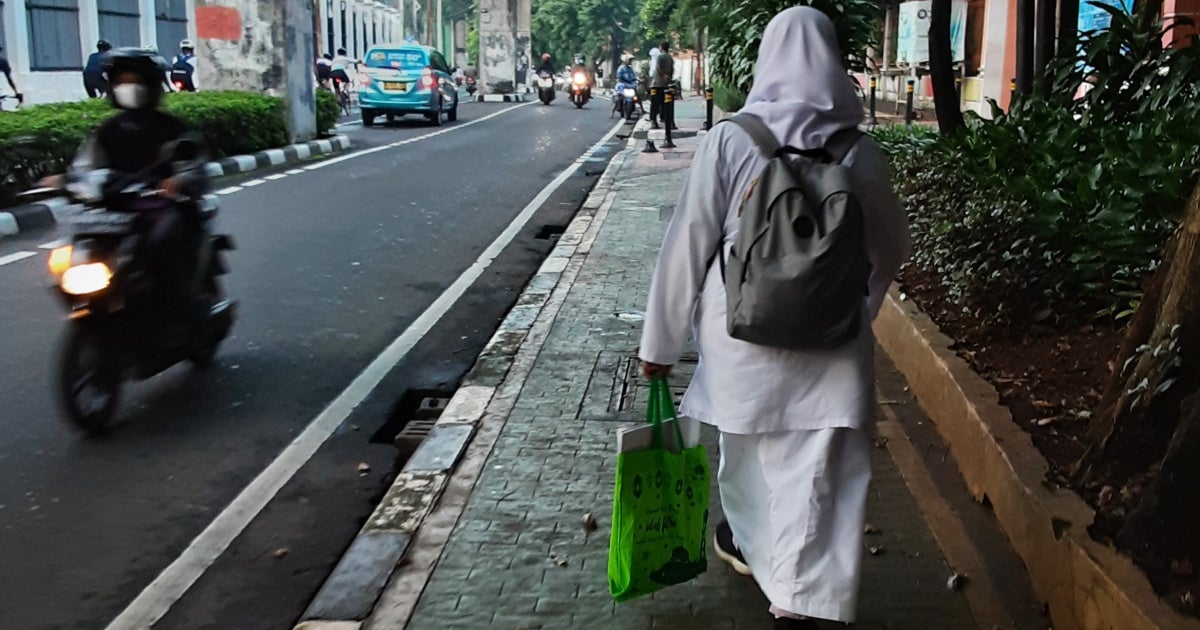(Jakarta) – The Indonesian government should better enforce a revised state school uniform regulation to protect girls and women from being required to wear the hijab, Human Rights Watch said today.
The Education Ministry in September 2022 adopted a regulation providing for personal choice in school uniforms that covers about 150,000 state schools nationwide. However, more than 70 local regulations require girls to wear a hijab in school and up to 15 provincial education offices refuse to abide by the 2022 regulation. A national curriculum that requires female students to wear the hijab in Islamic class also thwarts choice in dress.
“The Indonesian government took an important step by adopting a national regulation to tackle hijab-related bullying, intimidation, and other abuses against girls and women,” said Elaine Pearson, Asia director at Human Rights Watch. “But the religious affairs and other government ministries need to work together to overcome local school uniform rules that deny schoolgirls their rights by requiring them to wear the hijab.”
Restrictive regulations on girls and women’s dress in schools and other public buildings have spread rapidly throughout Indonesia over the past two decades. They have compelled millions of schoolgirls and female government employees to wear the hijab, covering the hair, neck, and chest, usually in combination with a long skirt and a long-sleeve shirt.
Article 3 of the 2022 regulation states that state schools can adopt a local government regulated pakaian khas (uniform), which may be based on pakaian adat (traditional clothes) such as wearing the hijab. However, because the regulation allows for parents rather than the schools to provide uniforms for their children, the parents can decide whether their daughters should wear the hijab – as well as either with long-sleeve or short-sleeve shirts, and long skirts or knee-length skirts.
Article 15 states that the Education Ministry should coordinate with the Home Affairs Ministry to ensure that local governments and school principals enforce the regulation. But the authorities also need assistance from the Religious Affairs Ministry, which mandates Islamic class teachers to require their female students wear the hijab.
Across Indonesia, the 2022 regulation has been difficult to enforce because of the many local hijab regulations. In August 2023, a teacher in a state middle school in Lamongan, East Java, shaved the heads of 14 schoolgirls for not wearing the ciput (cloth), a knitted head covering, under the hijab. In July 2023, in Karawang, West Java, a family of Sunda Wiwitan believers took their daughter out of a state primary school because her teachers bullied her over her refusal to wear the hijab. Ultimately, the family moved from Karawang.
Previous government regulations facilitated widespread bullying of girls and women to force them to wear the hijab, which led to deep psychological distress. In at least 24 predominantly Muslim provinces of Indonesia’s 38 provinces, girls who did not comply with hijab requirements were forced to leave school or withdrew under pressure. Some female civil servants, including teachers, doctors, school principals, and university lecturers, lost their jobs or felt compelled to resign because of hijab requirements. Bullying and intimidation to wear the jilbab has also frequently occurred on social media.
Schoolgirls and female teachers have a right to make their own decisions on what clothing to wear, and especially whether to wear the hijab. The Indonesian government’s enforcement of hijab regulations against women and girls violated provisions in several human rights treaties that Indonesia has ratified, including the rights to freedom of religion, expression, privacy, and personal autonomy.
Indonesia has had 120 local mandatory hijab regulations, mostly local executive decrees, which were first introduced in West Sumatra in 2001 and Aceh in 2002. Of those, 73 are still in force. Sanctions for violations include verbal warnings, expulsion from school or work, and jail terms of up to three months, according to the National Commission on Violence Against Women (Komnas Perempuan).
“The 2022 regulation should result in girls and women wearing clothes that reflect their own choices,” Pearson said. “The Indonesian government’s compliance with its international human rights obligations means ending the use of uniform regulations that violate women and girls’ rights.”




